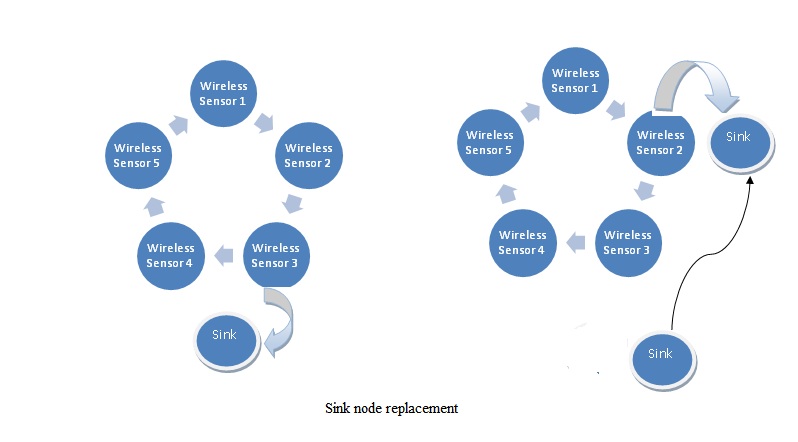Omnet++ Projects:
Omnet++ projects are used for simulation of wireless networks. These Omnet++ projects are mostly used in simulating wireless and mobile networking projects. Our Omnet++ projects help students and researchers understand network behavior efficiently.
What is Sink node?
Sink node often acts as the base station which collects data from the sensor nodes. One of the main disadvantages of wireless sensor networks is high energy consumption. To overcome this, the sink node is used in Omnet++ projects. The sink node collects all information from sensor nodes and sends it to their respective locations.
Why we are using sink node in Omnet++ projects?
In wireless sensor networks, sensor nodes sense data and the sensory information reaches the destination using "hopping or jumping" methods. This wastes energy and increases network traffic unnecessarily. Hence, in our Omnet++ projects, we use the sink node concept to save energy and optimize network traffic.
Sink Node Replacement Algorithm in Omnet++ Projects:
Once data is collected from sensor nodes, it is transferred to the next nearby sensor node forming a tree-like structure to reach the sink node. The algorithm selects the most energy-efficient tree structure to reach the sink node in Omnet++ projects.
The sink node moves periodically to save energy consumed by the sensor nodes. In Omnet++ projects, the sink node receives data from different sensors based on optimized paths in successive networks. This ensures minimal energy usage and efficient data collection.

We provide Omnet++ projects to simulate wireless sensor networks with sink node replacement. Our Omnet++ projects offer full guidance and support for M.E, B.E, and Ph.D scholars to simulate networks efficiently using Omnet++ tools.
Omnet++ projects are designed to enhance learning and research capabilities for scholars. By implementing the sink node algorithm in Omnet++ projects, energy consumption is reduced, and network performance is improved.
Our Omnet++ projects team ensures high-quality, error-free, and efficient simulation results. Scholars working on Omnet++ projects can rely on our guidance for both academic and research purposes.
Omnet++ projects provide practical experience in simulating wireless networks. Using sink node strategies in Omnet++ projects allows students to study realistic scenarios in network communication.
Article
The Best Choice
Services
Coding Implementation Services
OMNeT++ Coding Support
We offer a comprehensive OMNeT++ simulation tool that allows you to develop a wide range of OMNeT++ based networking Projects.
Read MoreNs3 Coding Support
Our team of experts develops custom NS-3 simulations and implements innovative protocols to address your unique networking challenges.cbg
Read MoreMATLAB Coding Support
Empower your research with our expert MATLAB coding assistance for research scholars
Read MorePython Coding Support
We provide comprehensive Python coding support for research scholars, from project conception to implementation and analysis
Read MoreCooja Contiki
We facilitate research progress by offering Cooja Contiki coding support for research scholars
Read MoreSumo Coding Support
We partner with research scholars by providing tailored Sumo coding support
Read MoreLatest Blog
Latest Articles From Our Blog Post

Latest Research and Thesis Topics in VANET
Vehicular Ad Hoc Networks (VANETs) represent a cutting-edge technology with the potential to revolutionize transportation systems.
Read More
PhD Guidance in Vehicular Ad Hoc Networks (VANET)
Vehicular Ad Hoc Networks (VANETs) are rapidly evolving, offering a transformative vision for the future of transportation.
Read MoreGet In Touch
Individuals investigating median pricing within their industry can greatly benefit from the expertise of leading researchers, particularly in areas such as research methodology, data coding, and academic writing.
No-35, South Usman Road,Chennai,India
phdacademy74@gmail.com
+91 8870457435
Popular Links
© PhD Academy. All Rights Reserved.